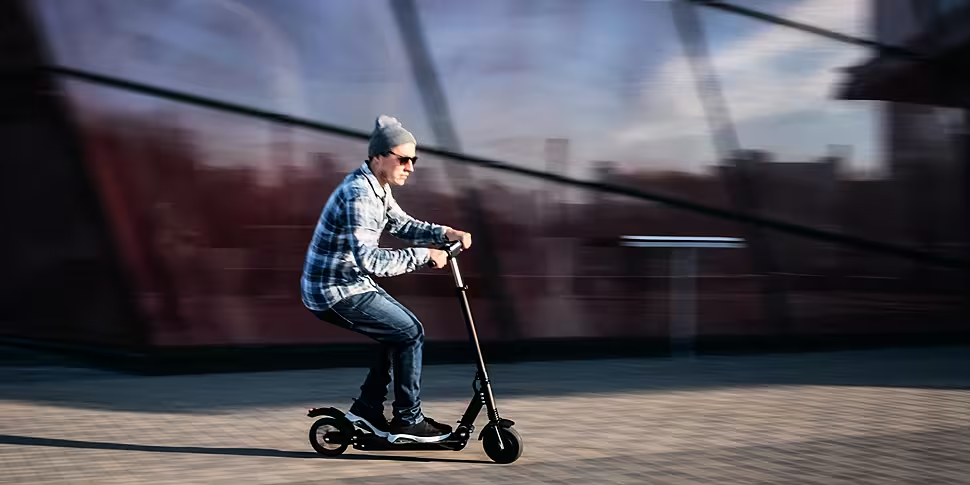The Mater Hospital is now carrying out surgeries related to e scooter accidents three or four times a month.
It comes as the government prepares to extend the current grant scheme for electric cars to e scooters and e-bikes.
The move is being celebrated as good news for consumers and greener travel – but there are concerns the government is moving forward with the plan too quickly with no legislation e-scooter legislation in place in Ireland.
On Newstalk Breakfast this morning, Mater Hospital Orthopaedic Surgeon Dr Frank Lyons said the extension is premature.
“It sounds certainly like they could do things - probably nothing too excessive or onerous - that could go a long way towards reducing the accident burden that will happen with electric scooters [before doing this],” he said.
He said many people are not ready for the acceleration power of many scooters when they are learning to ride.
“There are a few things we have observed with the patients we’ve seen coming in,” he said.
“The first is that the accidents that happen, there’s definitely a trend where people seem to be injured in the early stages or on their initial journeys using the scooters.
“So, there is definitely a familiarity curve and perhaps people don’t appreciate for example the power of the scooters.
“They also handle differently to a bicycle or another two-wheeled type of vehicle that people may be used to.
“It brakes differently, it handles defects in the road surface differently and it turns differently – the wheels are much smaller and the braking mechanism is different.”
Dr Lyons said the Mater now carries out three to four surgeries related to e scooters every month.
He said the faster people are travelling before an accident, the more likely they are to get gurt – but there are other factors to consider as well.
“There are unfortunately people who are intoxicated using scooters which is definitely an issue,” he said.
“There is a wide age range as well, so there are young people and also some older people using them - perhaps thinking they might be a mobility assistance type of device - but again, the acceleration seems to be very, very quick and people in their initial few uses of the scooters do seem to be a bit caught out by the power in which they can accelerate.
“That’s definitely having a bearing on the accidents.”
Dr Lyons said he has nothing against the scooters themselves – but said Ireland should consider making lights, helmets, and basic training mandatory before use.
You can listen back here:









